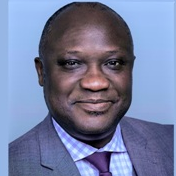Brain Organoids: Future Prospects
A special issue of Cells (ISSN 2073-4409). This special issue belongs to the section "Cell Methods".
Deadline for manuscript submissions: closed (31 October 2022) | Viewed by 568
Special Issue Editors
Interests: iPSC-based disease modelling; Alzheimer's disease; Nijmegen breakage syndrome; steatosis patients; acute and chronic kidney injury
Special Issues, Collections and Topics in MDPI journals
Special Issue Information
Dear Colleagues,
In addition to therapy, in vitro differentiated cells are currently used for drug testing, development, and disease modeling to give valuable insights into underlying mechanisms. iPSC-derived 3D organoids are composed of distinct cell types characteristic within the organ under investigation and adopt specific organ-related structure, thus further increasing their maturity and utility compared to 2D cultured cells. Furthermore, culturing of organoids employing organ-on-a-chip systems has added an additional level of sophistication and enhancement, thus enabling investigations at near-physiological levels.
Methodologies to attempt to create neuronal 3D models from PSCs have been pursued since the late 2000s with a breakthrough being achieved more recently with the generation of brain organoids. Brain organoids derived from iPSCs are self-organizing structures which recapitulate with considerable accuracy the temporal neurodevelopmental trajectory similar to fetal development. Notably, not only the cyto-architecture of the brain organoids mimics aspects of the human brain, but also shares similar epigenetic and transcriptional programs, features of the fetal brain. The exciting advances in the brain organoid field have opened up new avenues and tools for getting a better understanding of human brain development. iPSC-derived organoids maintain the human genomic context and thus hold a great and unique potential in modelling neurodevelopment and other neurological diseases, allowing to address new questions that are limited in other model systems. This work paved the way to a new field of research, and over the past few years an array of different brain organoid protocols have been developed. However, brain organoid technology is still in an early phase of development facing several challenges that limit their utility, and further optimization of the existing models is required. New robust and standardized protocols of differentiation and maturation of brain organoids, with increased complexity while maintaining reproducibility are needed. A combination of refined brain organoids systems with technological advances in the “-omics” methodologies and genome editing tools will increase our knowledge on new aspects of human brain development, to model neurological diseases and to address new questions that are limited to other model systems.
In this special issue Brain organoids: Future Prospects, we invite you to contribute with original research articles, reviews, meta-analyses or short perspective articles on all aspects related with the utility of brain organoids as experimental systems for studying neurogenesis and molecular mechanisms underlying brain-associated diseases.
We look forward to your contributions to this Special Issue.
Prof. Dr. James Adjaye
Dr. Soraia Martins
Guest Editors
Manuscript Submission Information
Manuscripts should be submitted online at www.mdpi.com by registering and logging in to this website. Once you are registered, click here to go to the submission form. Manuscripts can be submitted until the deadline. All submissions that pass pre-check are peer-reviewed. Accepted papers will be published continuously in the journal (as soon as accepted) and will be listed together on the special issue website. Research articles, review articles as well as short communications are invited. For planned papers, a title and short abstract (about 100 words) can be sent to the Editorial Office for announcement on this website.
Submitted manuscripts should not have been published previously, nor be under consideration for publication elsewhere (except conference proceedings papers). All manuscripts are thoroughly refereed through a single-blind peer-review process. A guide for authors and other relevant information for submission of manuscripts is available on the Instructions for Authors page. Cells is an international peer-reviewed open access semimonthly journal published by MDPI.
Please visit the Instructions for Authors page before submitting a manuscript. The Article Processing Charge (APC) for publication in this open access journal is 2700 CHF (Swiss Francs). Submitted papers should be well formatted and use good English. Authors may use MDPI's English editing service prior to publication or during author revisions.
Keywords
- induced pluripotent stem cells (iPSCs)
- genome editing
- brain disease modeling
- organoids
- organ-on-a-chip
- cellular therapeutics
- bioinformatics and meta-analysis
- differentiation protocols
- reviews on iPSC-based 3D brain organoids in health and disease







